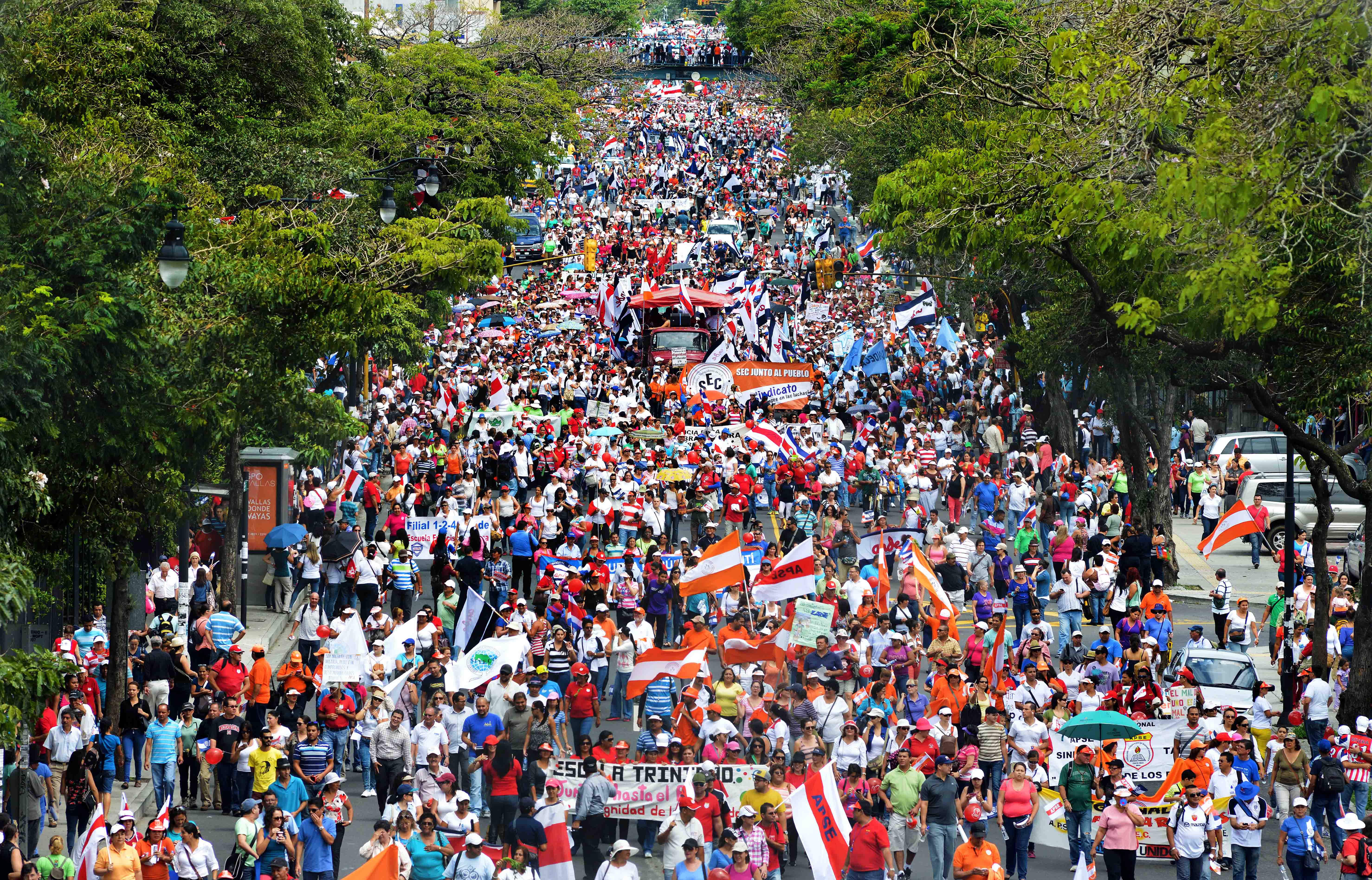One of the campaign promises of President Luis Guillermo Solís that reverberated most with voters was the pledge of transparency in government. Following years of backroom politicking and a seemingly endless chain of corruption scandals, Costa Ricans had had enough, voting a Citizen Action Party (PAC) administration into office for the first time in history.
In the first month of this administration, despite having to deal with a failed attempt by the National Liberation Party to implement a new payroll system, and the teachers’ unions strike this failure provoked, there is some evidence that the promised transparency is beginning to take shape.
In the aforementioned teachers’ strike, this transparency has helped the public make up their own minds about the intransigence in the recent labor action. Information released by the Education Ministry (MEP) made clear that over 82 percent of educators faced automatic deductions in their paychecks for May for previous loans incurred.
Information from the Finance Ministry revealed that more than half of the total salary paid to teachers went directly to these financial institutions due to contracts individual teachers have entered into with banks and credit unions. It couldn’t possibly be that when striking teachers complain of receiving partial payments they somehow believed they thought their strike or the transition to a new payroll system was going to simply erase the debts they had previously incurred? One hopes not, as this action simply cedes the just high ground that the work-stop action originally enjoyed when it sought to solve the very real problem of some teachers not receiving salaries.
In an interview this week largely referring to Route 1856, a 160-kilometer road running along the Río San Juan and the border with Nicaragua, Solís opined that Laura Chinchilla’s administration had “left a mess.” The teachers’ strike caused by the seemingly hyper-politicized decisions by an outgoing PLN administration to implement a new payroll system in the final days of their administration is but another example of the mess left behind. But as U.S. Supreme Court Justice William O. Douglas famously said, “Sunlight is the best disinfectant,” and releasing data illustrating exactly why many teachers did not receive their “full” payment in May is a powerful example of transparency that helps the public understand the many claims made by unions representing striking teachers. One hopes it will become the signature administrative approach to mess-cleaning going forward.
Already this sunlight seems to have had some effect, as cracks are appearing in the once united front of the three unions negotiating with the Solís administration. Insinuating that separate accords would be tantamount to high treason against their members, the president of the National Association of Educators (ANDE) Thursday night did her best to paper over divisions with spirited rhetoric and hyperbole, even as news outlets revealed that the Costa Rican Educators Union (SEC) had appointed someone to the three-party union committee to resolve problems with teachers’ payments who had been fired from MEP in 2011 for creating teaching positions for nonexistent persons.
When someone fired from MEP for such a grievous case makes her way onto the committee attempting to resolve the payment issues, one wonders how serious the unions are about actually ending the strike, much less helping their member teachers. In these cases, sunlight, transparency in government, and information shared with the public has created pressure on unions to settle the strike, before public support completely evaporates.
Further evidence of a new era of transparency came in the government’s revelation of office space contracts for exorbitant rents that members of the previous administration had signed, in some cases only months before leaving office. President Solís announced that the government pays some ¢30 billion a year (more than $54 million) in rent for office space for public offices.
Vice President Helio Fallas has suggested that if the government simply built new government offices they could save almost a third of this amount.
The Greek philosopher Aristotle first suggested the analogy that the economic activity of a state is like management of the household budget. Most Tico families faced with a choice between renting an apartment or buying a house for 30 percent less than the annual cost of renting would make that deal in a minute. One wonders why previous administrations never thought to look into these contracts? Whose household was being managed when Costa Rican taxpayer money is wasted in such egregious overpayments?
Much-needed transparency also has come to the Public Works and Transport Ministry (MOPT). Minister Carlos Segnini, assuming leadership of one of the Chinchilla administration’s most scandal-ridden ministries, also announced he is ready to bring forward legal action against cases of corruption and the individuals responsible for them that he has discovered in his ministry after only a month in office.
For his part, Solís has called on accountants in every ministry to denounce fraud and corruption they encounter. Comparing them to machetes that will help clean the “farm of state,” Solís promised that government whistleblowers need not fear reprisals for their revelations.
Cleaning up the mess left behind will take time. As more and more sweetheart deals like the contracts signed by the PLN for office space are revealed, as more information about the motivations of union leaders behind the teacher strike are discovered, and as the cases against corrupt MOPT officials and contracts are announced, the depth of the significance of a change in political power chosen by Costa Ricans on April 6 will become ever more clear. And clarity of understanding, purpose and decision is exactly what transparency in government seeks to produce.
Gary L. Lehring is a professor of government at Smith College, Northampton, Massachusetts. He is on sabbatical in Costa Rica.






